It was the best of times, it was the worst of times, it was the age of wisdom, it was the age of foolishness, it was the epoch of belief, it was the epoch of incredulity, it was the season of Light, it was the season of Darkness, it was the spring of hope, it was the winter of despair. — Charles Dickens, A Tale of Two Cities (1859).
Call me Ishmael. — Herman Melville, Moby-Dick (1851).
You don’t know about me without you have read a book by the name of The Adventures of Tom Sawyer; but that ain’t no matter. — Mark Twain, Adventures of Huckleberry Finn (1885).
Mother died today. — Albert Camus, The Stranger (1942).
* * *
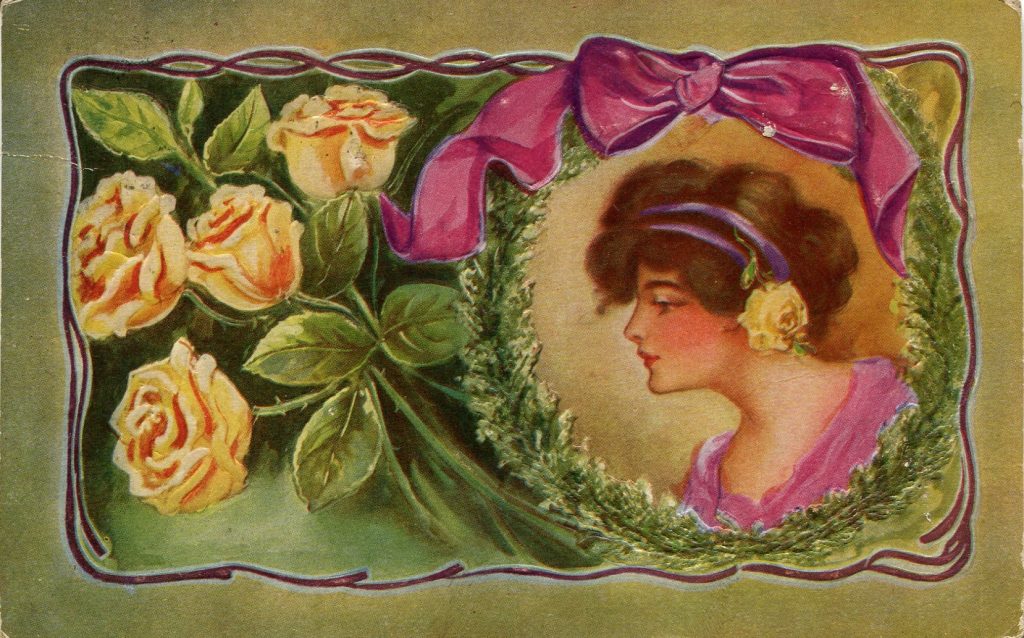
The opening line of the message is “Dear Mother,
How are you?” It is signed, Carrie
My creative writing teacher walked into our classroom on the first day of the semester and began his lesson with, “I bet you all think you know how to write! Well, let me tell you something you will learn to hate me for later. You don’t know Jack Sh*t about writing. But, if you are brave enough to stay in those seats until next June and you pay attention to my critiques of your assignments, you may someday, I said “someday” have a fighting chance to write an intelligent sentence.”
That was September 1962; I will never forget it. He was right, I learned to hate him fast – only two days later. Never had I received an “F” on an assignment, and did not like it one iota when the first assignment was returned to me with a big, red “F” at the top. He failed me for a comma fault. (Just in case you’re interested, there is a comma fault in the first sentence of this paragraph. Can you find it?) **
Oh, where are you today, Dr. Z?
* * *
Opening lines are important. At the top of this page are four of the best first lines in all of literature. Agreed, it is so only because it is my opinion. Surely you have a favorite first line. Tell me of it in the comments section below. But in the meantime, let me show you six postcards that I purchased recently at a show in Lancaster, Pennsylvania.
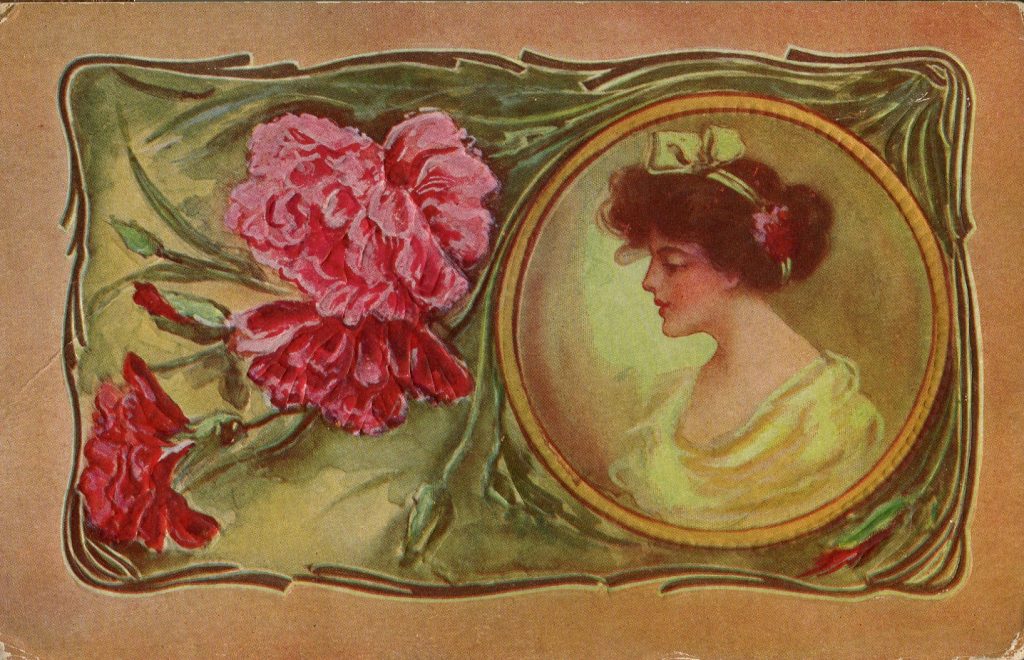
The opening line of the message is “Dear Jessie, I don’t have
much to tell you.” It is signed, Mary
Each of the six cards has a message. All written by different persons, but the cards are all from the same set, evidenced by the sequential number in the lower-left corner on the address-side. The six were all mailed in the second decade of the 20th century. Each, except one, has a distinguishable postmark.
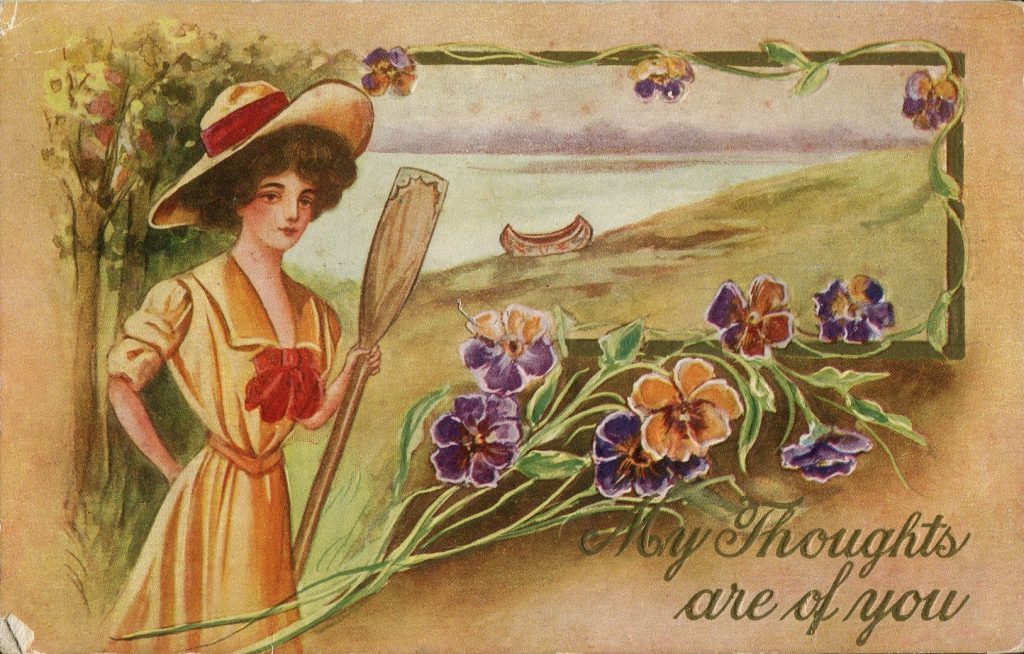
The opening line of the message is “Dear Hilda, We got the watch alright,
but then Albert found his Sat. Morning.” Signed, “Love,” Mable and Alfred
The point of this essay is – oh, my goodness this will sound downright snobbish – many students in the 21st century have learned very little beyond that which was known by our ancestors of the 20th.
With a little training and lots of practice each of us is capable of learning how to string text together, spell, capitalize, punctuate, and obey the rules of grammar. With that said, there is one more element to writing – creativity. Because I was once part of the community, I refuse to say our schools have failed, but one point is missing from the system, and it is obvious – very little success has been achieved when thinking skills are part of the lesson plan.
* * *
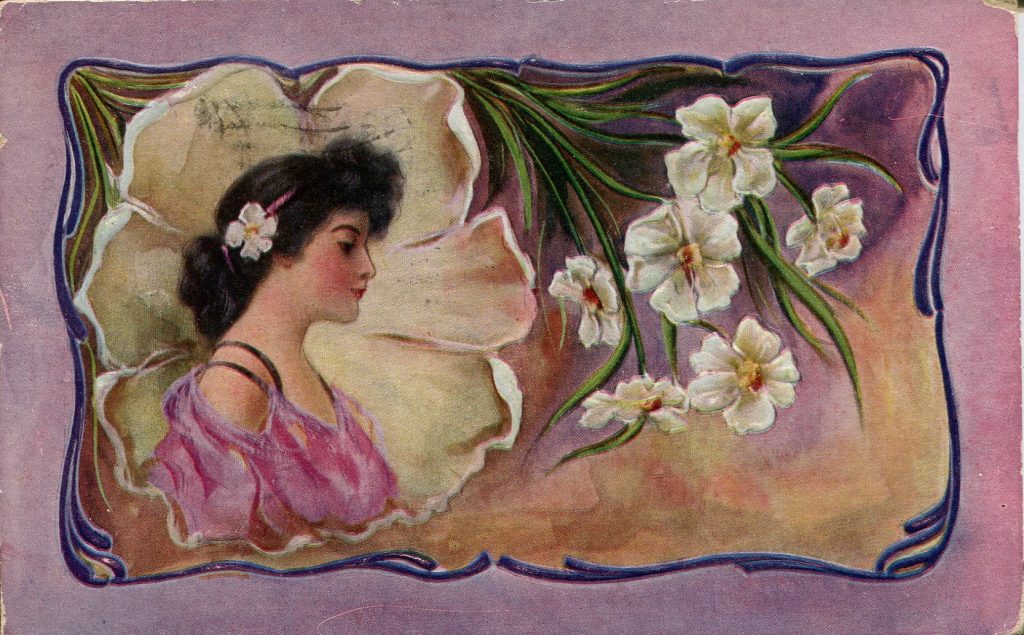
in 1918. The opening line of the message is “Dearest, Received your card.
We are fine. How is your Mother. Come back soon.” Signed, Mrs. Landis
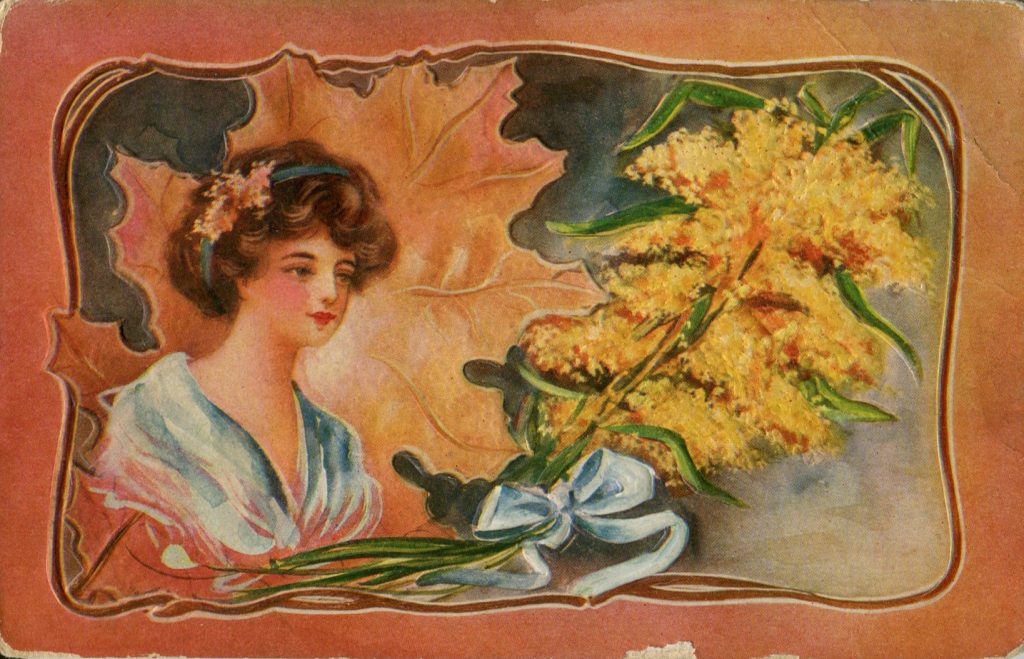
The opening line of the message is “Got your letter. Hope you are
not sick. Signed, “by-by,” Mama
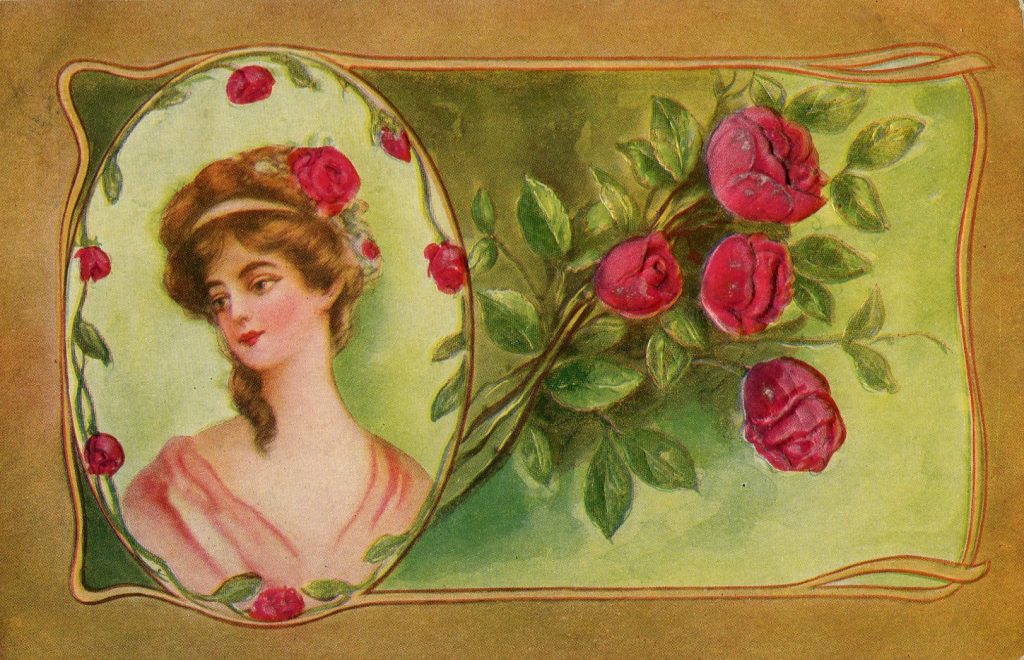
The opening line of the message is “Dear Cousin Stella, We are well. Hope
you can read my handwriting.” Signed, Cousin Clara
* * *
It is safe to say that every reader may draw conclusions about these messages, however as a casual observer here are few things to consider: First, every message is written in pencil. Thank the inventor of the ball-point pen. Two, generally the penmanship does not succeed. Thank Messrs. Peterson and/or Palmer, then scold every school board member that has voted to eliminate handwriting skills from their district’s curricula. Three, a woman wrote every message. What are the odds? And finally, these messages are a fair measure of what was important at the time. Go back and reread the messages, do any of them still resonate? I think they do. They are timeless!
* * *
*The term “jack shit” was comparatively new in America at the time I first heard it in the 1960s. It is a corruption of an expression most often heard from British sailors. “He doesn’t know jacks from sheets,” where “jacks” were flags or small sails, and “sheets” were large sails. In such terms it is not a far cry to speak of a new crewman as “not knowing jacks from sheets” to “not knowing jack shit.”
**The comma between “assignment” and “and” is a comma fault. Intended for your amusement!
The Oxford comma is very annoying.
Except for my holiday postcards, very few messages have anything to do with the visual subject of the card. Common are, “Why don’t you write a letter (or come to visit)”, and “so and so has been sick”. Many of mine have a message, but were never mailed. Often this was because postcard collecting was a very popular hobby back then, and it was much less expensive to send 3 or more postcards in one envelope.
These are very lovely cards. I think their penmanship and grammar are excusable, once turned over to the front side.
Thank you for sharing!
I was confused by the comma fault challenge, as the mistake occurred in the third sentence of the paragraph as opposed to the first. My freshman English professor automatically failed any paper which contained a comma splice or a spelling error.
The comma fault in the first sentence of the paragraph is no comma between month and year, isn’t it? A local travel agent broadcast an ad with some grammar errors. As I recall, they involved pronoun agreement. My wife pointed this out to the agent while planning a vacation. The agent said, “You must be a teacher. Nobody else would care about that.”
Wonderful to scroll through these blasts from the past! The art is phenomenal! Thanks to Mr. Burton for the recommendation!